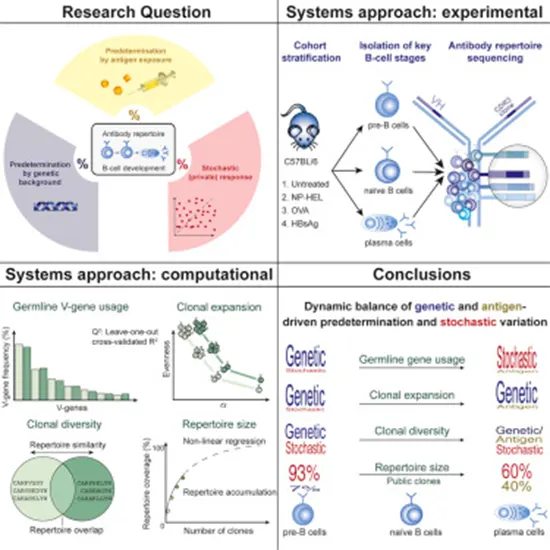
Book B-Cell Clonality Analysis, IgH Appointment Online Near me at the best price in Delhi/NCR from Ganesh Diagnostic. NABL & NABH Accredited Diagnostic centre and Pathology lab in Delhi offering a wide range of Radiology & Pathology tests. Get Free Ambulance & Free Home Sample collection. 24X7 Hour Open. Call Now at 011-47-444-444 to Book your B-Cell Clonality Analysis, IgH at 50% Discount.
The VDJ section of the immunoglobulin heavy chain (IgH) gene is analyzed in the IgH Clonality by NGS test to identify B-lymphocyte clonal populations in a specific patient sample. For diagnosing B-cell lymphoma or leukemia, it's critical to look for clonal B-lymphocyte populations.
What is a clonality test? Clonality analysis of B-cell populations can aid in diagnosing lymphoproliferative illnesses. This examination confirms or disproves the presence of B-cell lymphomas or leukemias.
Why Clonality Assays Are Done? If the microscopic examination is unclear, molecular clonality assays can assist in distinguishing between reactive and malignant lymphoid proliferations by analyzing the diversity of lymphocyte antigen receptor gene rearrangements.
Documenting the deposit of a single cell into a microtiter well using cell sorting (FACS) or photos captured as early as feasible during cell line development is the simplest way to offer a high chance of a clonal cell bank.
IGH mutations may or may not have been seen in malignancies in humans.
The existence of a clonal B-cell population in peripheral blood with less than 5 109/L B-cells and no other indications of a lymphoproliferative illness is known as monoclonal B lymphocytosis (MBL). The immunophenotype of chronic lymphocytic leukemia is present in most cases of MBL (CLL).
When an antigen comes into contact with the immune system, its epitopes eventually only react with B-lymphocytes with more-or-less compatible B-cell receptors on their surface, activating those B-lymphocytes. Clonal selection is the name given to this process.
By examining the gene rearrangements of antigen receptors, which are specific to each kind of lymphocyte, PCR-based clonality testing may be carried out in all lymphoproliferation.
Studying clones created from a single cell is the foundation for clonal analysis. It enables the generation of embryonic cell lineages and provides precious information on the characteristics of cells. It can determine the pace and pattern of development and detect apoptosis [9]. (either oriented or isotropic).
Clonality refers to a substance's or a cell's origin, either from one source or another. There is terminology like polyclonal, which is derived from several clone; oligoclonal, which is derived from a small number of clones, and monoclonal, which is derived from a single clone. The most frequent contexts in which these words are employed involve antibodies or immunocytes.
Clonality is described as the occurrence of two tumours that both developed from the same progenitor cell that had previously undergone malignant alterations.
| Test Type | B-Cell Clonality Analysis, IgH |
| Includes | B-Cell Clonality Analysis, IgH (Oncology) |
| Preparation | |
| Reporting | Within 24 hours* |
| Test Price |
₹ 9400
|

Early check ups are always better than delayed ones. Safety, precaution & care is depicted from the several health checkups. Here, we present simple & comprehensive health packages for any kind of testing to ensure the early prescribed treatment to safeguard your health.